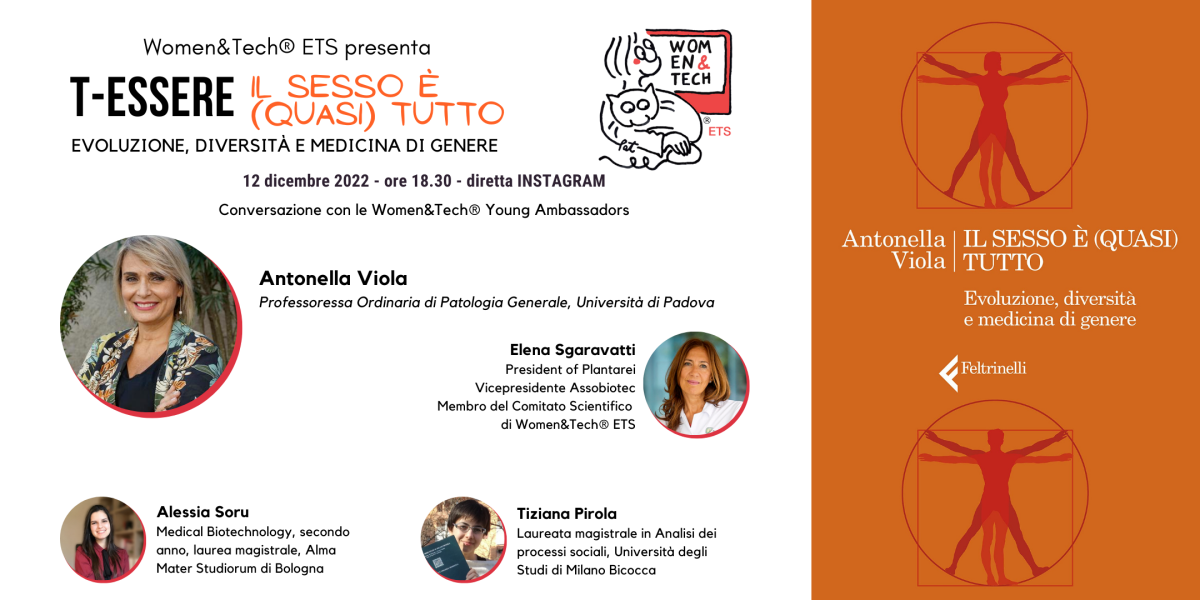
Instagram Live on December 12, 2022, at 6:30 PM We live in a world of males and females. Hard to imagine something more natural. But do we really know in what they are different? What is sex in biology? And gender? How does sexual orientation work? Is the world really binary? The view that separates it based on the two sexes is as simple and obvious as the idea that it was the Sun revolving around us, before the Copernican revolution. Male and female are distinct in substance and roles. Yet, this view does not correspond to reality. For too long we have found differences where there are none and turned them into dogmas. Instead, we have ignored the truly important differences. Our culture has instrumentalized the differences related to sex and gender and exacerbated them. On the contrary, science has ignored them for too long. The female body has been poorly studied, poorly considered, and consequently poorly treated. For centuries, medicine has been a medicine for white males by white males. Continuing to ignore this serious imbalance means reducing our ability to heal. Why, for example, are we better at treating cardiovascular diseases in men and depression in women? A revolution in science, in our habits, and in the words we use is urgent. It can start with gender medicine. Antonella Viola guides us in the discovery of a fair medicine, finally attentive to the physiological differences related to sex but also to the consequences that gender disparities have on health. "To make a revolution," writes Viola, "means to have new eyes to look at ourselves and the rest of the world. New eyes to recognize the differences that matter. And to give them value." In biology, sex was born as an opportunity for adaptation to a rapidly changing environment. Today it has become our cage, because we live in a rigidly binary world. Without seeing the differences that matter. Why does sex exist? What is the difference between sex and gender? Are males and females different? And in what way? Are we treating them in the right way? We will discuss this with Antonella Viola, author of "Il sesso è (quasi) tutto," published by Feltrinelli, Elena Sgaravatti, member of the Scientific Committee of Women&Tech® ETS, and our Women&Tech® Young Ambassadors.
intervene



